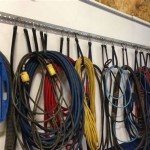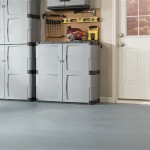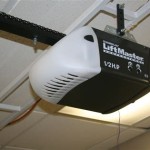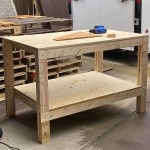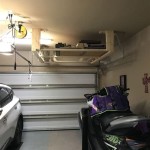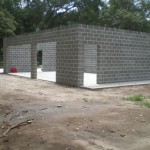Chamberlain Garage Door Opener Keypad Not Working in Cold Weather
Garage door opener keypads offer convenience and security, allowing access to a garage without the need for a physical key or remote. However, during periods of cold weather, the functionality of these keypads can sometimes be compromised, leaving homeowners frustrated and potentially locked out. The reliability of a Chamberlain garage door opener keypad, a popular brand known for its features and integration with smart home technology, can be particularly susceptible to cold weather conditions. Understanding the reasons behind this malfunction and knowing how to troubleshoot the issue are crucial for maintaining consistent access to one's garage.
Several factors can contribute to a Chamberlain garage door opener keypad failing to function properly in cold weather. These factors range from battery performance and lubrication issues to the physical impact of temperature on the keypad's internal components. A systematic approach to diagnosing the root cause is essential for implementing an effective solution.
Impact of Cold Temperatures on Battery Performance
A primary culprit behind a malfunctioning Chamberlain garage door opener keypad in cold weather is diminished battery performance. The chemical reactions within batteries, which generate the electrical current necessary for operation, slow down significantly at lower temperatures. This reduced chemical activity translates to a lower voltage output, potentially insufficient to power the keypad effectively. The type of battery used also plays a crucial role; alkaline batteries, commonly found in garage door opener keypads, are particularly susceptible to cold weather performance degradation compared to lithium batteries.
The internal resistance of the battery also increases in cold weather. This higher resistance restricts the flow of current, further reducing the power available to the keypad. As a result, even if the battery appears to have sufficient charge under normal conditions, it may struggle to provide the necessary power to activate the keypad's functions when temperatures drop. Symptoms of reduced battery performance include dim or unresponsive key presses and an inability to send a signal to the garage door opener unit.
To mitigate the effects of cold weather on batteries, several strategies can be employed. One approach is to use lithium batteries, which are known for their superior performance in cold environments. Lithium batteries maintain a more consistent voltage output and are less affected by temperature fluctuations compared to alkaline batteries. Another preventative measure involves insulating the keypad to shield it from extreme temperature variations. This can be achieved by constructing a simple insulated cover or by strategically positioning the keypad to minimize exposure to direct wind and cold air.
Furthermore, periodically checking the battery voltage, especially during cold weather spells, can help identify weakened batteries before they completely fail. Replacing batteries proactively, rather than waiting for them to die completely, ensures continuous operation of the keypad and prevents unexpected lockouts. Consider keeping a spare set of batteries readily available for quick replacements.
Lubrication and Mechanical Issues
Beyond battery-related issues, cold weather can also affect the mechanical components of the Chamberlain garage door opener keypad. Low temperatures can cause lubricants to thicken, increasing friction within the keypad's buttons and internal mechanisms. This increased friction can hinder the smooth operation of the buttons, making them difficult to press or causing them to stick. In extreme cases, the buttons may become completely unresponsive.
The accumulation of moisture within the keypad can exacerbate these issues. When temperatures fluctuate around the freezing point, condensation can form inside the keypad, potentially leading to corrosion and further hindering the movement of mechanical parts. Ice formation can also occur, physically obstructing the buttons and preventing them from being depressed properly.
To address lubrication and mechanical issues, it is important to use a lubricant specifically designed for cold weather applications. Silicone-based lubricants are often recommended, as they maintain their viscosity and lubricating properties at lower temperatures compared to petroleum-based lubricants. Apply a small amount of lubricant to the buttons and any other moving parts within the keypad, taking care not to oversaturate the components. Avoid using lubricants that can attract dust and debris, as this can worsen the problem over time.
Regular cleaning of the keypad can also help prevent the buildup of dirt, moisture, and other contaminants that can interfere with its operation. Use a soft, damp cloth to wipe down the keypad's surface, paying close attention to the areas around the buttons. Avoid using harsh chemicals or abrasive cleaners, as these can damage the keypad's finish or internal components. In cases of severe corrosion or ice formation, professional assistance may be required to disassemble and clean the keypad thoroughly.
Signal Interference and Range Limitations
Cold weather can indirectly affect the performance of the Chamberlain garage door opener keypad by influencing the transmission and reception of radio frequency (RF) signals. While temperature itself may not directly impede RF signals, factors associated with cold weather, such as increased humidity and the presence of ice or snow, can attenuate or interfere with the signal.
The range of the keypad’s signal can also be reduced in cold weather. This reduction in range can be attributed to a combination of factors, including decreased battery power and increased signal attenuation. If the keypad is located a significant distance from the garage door opener unit, the signal may not be strong enough to reliably activate the opener, especially during periods of cold weather.
To improve signal strength and range, consider repositioning the keypad closer to the garage door opener unit. Ensure that there are no obstructions, such as metal objects or dense foliage, between the keypad and the opener unit. Metal objects can reflect or absorb RF signals, while dense foliage can block or weaken the signal. Additionally, verify that the antenna on the garage door opener unit is properly positioned and free from damage.
Another potential source of signal interference is the presence of other electronic devices operating on the same frequency as the garage door opener. These devices can include cordless phones, wireless routers, and other RF transmitters. To minimize interference, try to keep these devices away from the garage door opener unit and the keypad. If signal interference persists, consider changing the frequency of the garage door opener to a less congested channel, if this feature is available. Refer to the Chamberlain garage door opener manual for instructions on how to change the frequency.
In some cases, the issue may not be directly related to the keypad or the garage door opener unit but rather to a faulty receiver within the opener unit. The receiver is responsible for receiving and decoding the signal from the keypad. If the receiver is damaged or malfunctioning, it may not be able to reliably interpret the signal, especially under challenging conditions such as cold weather. In such cases, professional inspection and repair of the garage door opener unit may be necessary.
Regular maintenance of the garage door system, including the keypad and the garage door opener unit, is crucial for ensuring reliable operation, particularly during periods of cold weather. This maintenance should include checking and replacing batteries as needed, lubricating mechanical components, cleaning the keypad and opener unit, and inspecting the antennas and wiring for damage. By proactively addressing potential issues, homeowners can minimize the likelihood of encountering problems with their Chamberlain garage door opener keypad in cold weather and maintain consistent access to their garage.

Craftsman Chamberlain Remote Garage Door Opener Keypad Cold Weather Operation Failure Repair

Garage Door Keypad Not Working

Garage Door Keypad Not Working Especially In The Cold

Garage Door Keypad Fix Repair Clean Not Replace

Garage Door Keyless Entry Pad Not Working Diy Fix

Frozen Functions How To Address Garage Door Keypad Issues In Cold Weather Fix Doors Ca

7 Tips For Fixing Garage Door Keypad Issues

Craftsman Chamberlain Remote Garage Door Opener Keypad Cold Weather Operation Failure Repair

How To Remove Or Replace A Garage Door Keypad

How To Change Or Program A Garage Door Keypad
Related Posts

